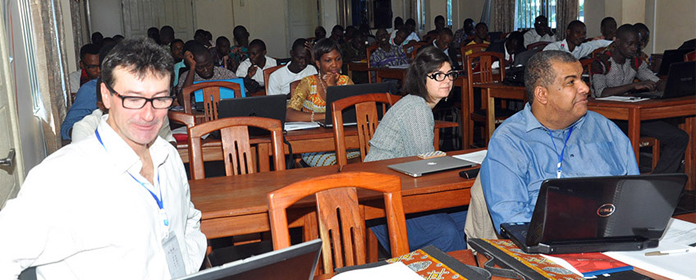NCID experts aim to educate a new generation of African economists in Benin
Luis Alberiko Gil-Alaña and Robert Mudida collaborate with the African School of Economics

The Navarra Center for International Development (NCID) makes it clear that future economists play a key role in combating extreme poverty, which is why its team members travel to countries like Benin, one of the poorest countries in Africa, to contribute to education.
To achieve this work, NCID has local partners, such as Leonard Wantchekon, the founder of the African School of Economics (ASE). This collaboration has materialized in the signing of a Memorandum of Understanding, whereby ICS and ASE agree on collaborative initiatives in research and training.
Among other things, the African School of Economics aims to educate a new generation of African economists prepared to address the development challenges that face the continent. To this end, they invite experts from prestigious institutions, such as Yale or Princeton, in order to offer an academic level comparable to that of the best universities in the world.
Robert Mudida noted that, “Teachers give intensive classes during one or two weeks, in about 40 hours, so they complete an entire course.” Mudida is a professor at Strathmore University (Kenya) and a non-resident researcher at NCID. Along with Luis Alberiko Gil-Alaña, an NCID researcher, Mudida attended the Annual Summer Institute for Economic Research, which ASE organizes.
Gil-Alaña revealed a project in which “talented professionals will be able to come to Navarra’s Pamplona campus and do a doctorate in development economics.”
For this reason, the researcher, whose line of research focuses on macroeconomic stability in sub-Saharan Africa, has hosted several ASE master’s students under his direction, advising them on research projects related to “economic and monetary integration issues between West African countries- Mali, Togo, Benin, Nigeria – or countries with the same language or other issues related to macroeconomics and the macroeconomic stability of these countries.”
